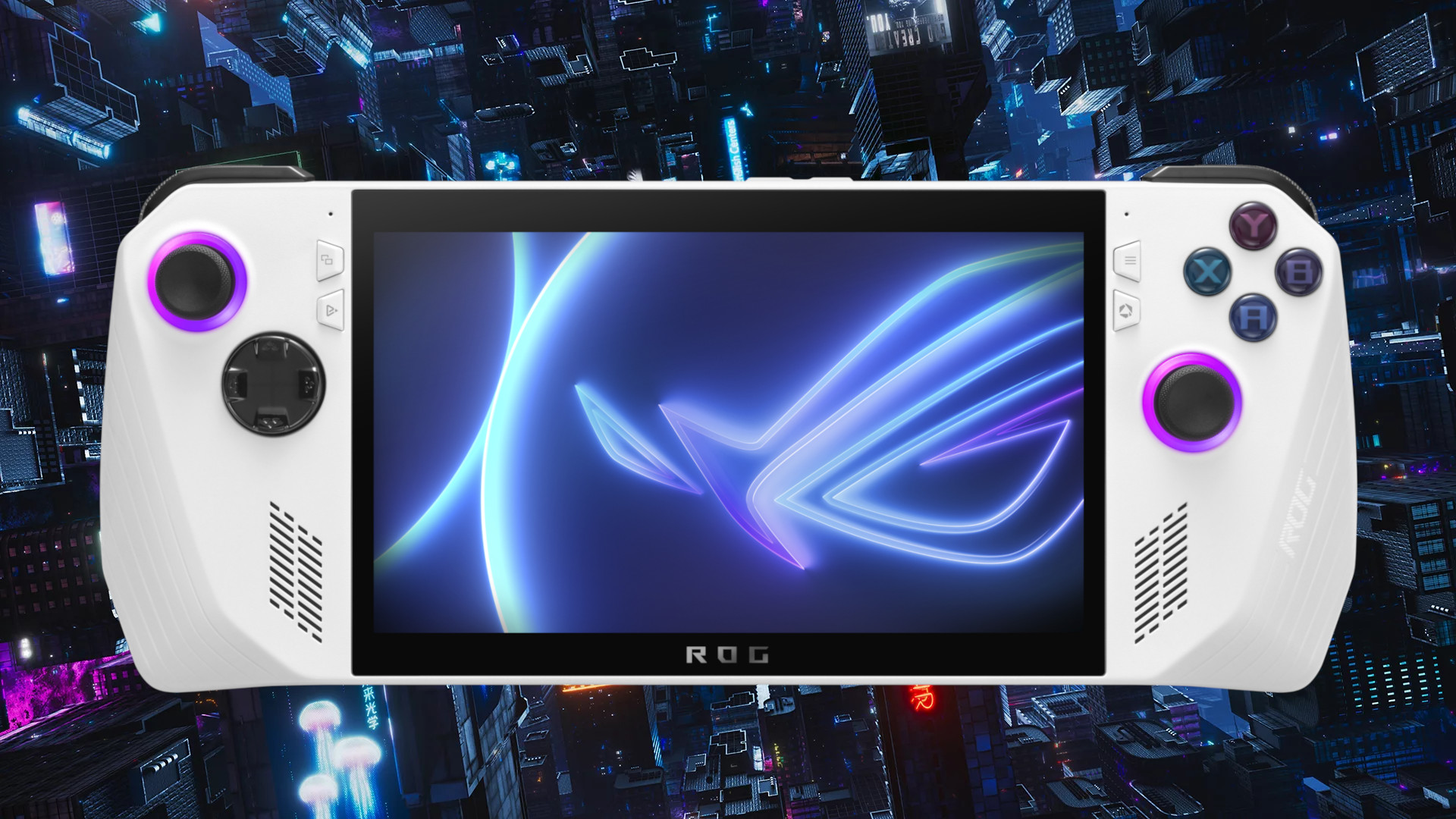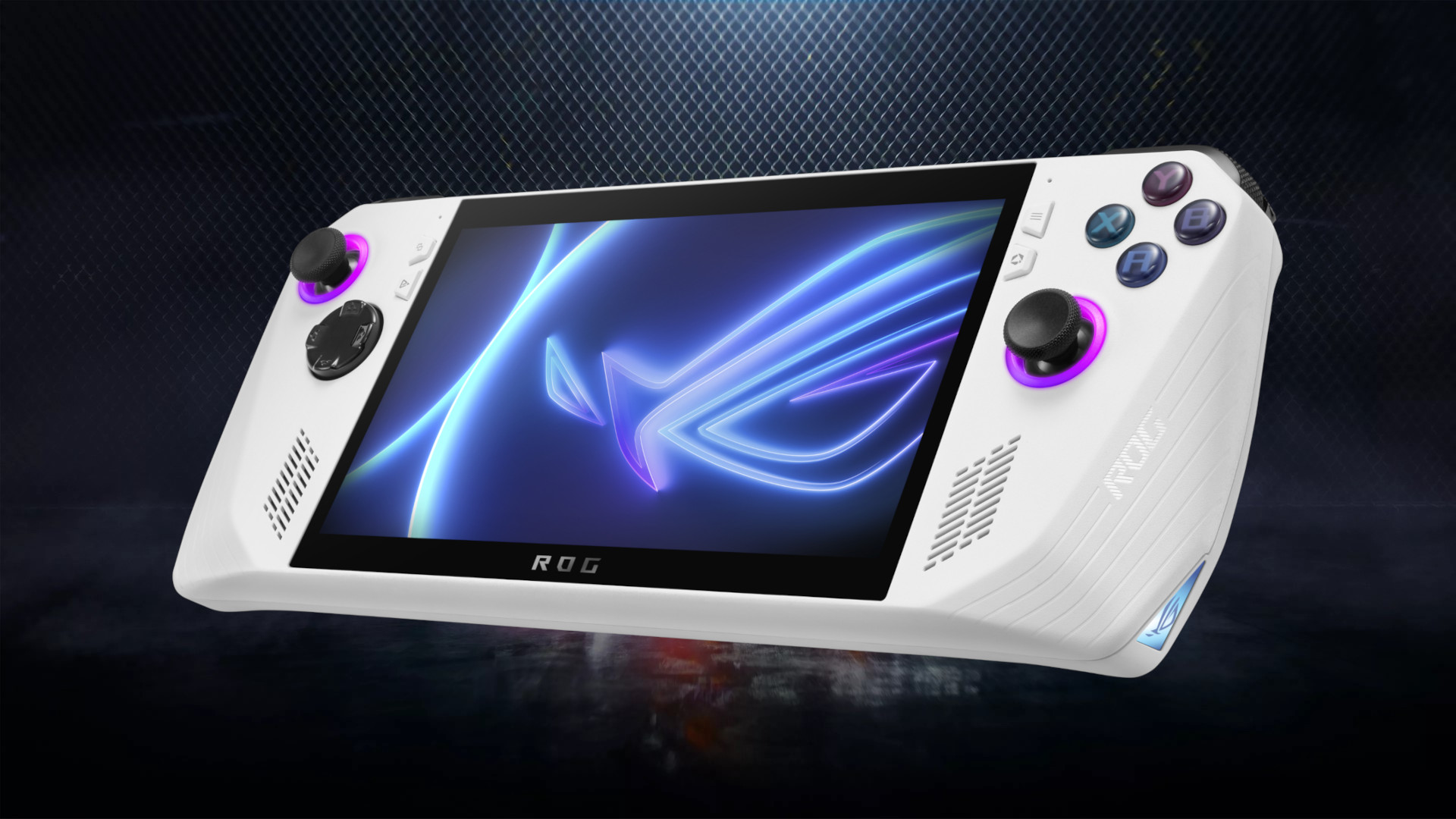Asus ROG Ally will run Windows 11, but I'm more interested in the launcher
All your games in one place

We've finally got more details on that mother of all false April Fools jokes, the Asus ROG Ally. Initially teased last month, the brand's first handheld gaming device will feature an all-AMD build, Windows 11 operating system, and a 608g form factor. With a bunch of specs and features announced today, there's plenty to love here, but it's the dedicated game launcher that's really going to have Steam Deck beat.
| Processor | AMD Ryzen Z1 |
| Graphics | RDNA 3 |
| Display | 7-inch 1080p, 120Hz |
| Storage | 512GB + UHS-II MicroSD slot |
| RAM | 16GB LPDDR5 |
| Controls | Xbox-style |
| Programmability | 2x macro back paddles, thumbstick deadzone and sensitivity, trigger sensitivity |
| Audio | Dual front-facing speakers, virtual 5.1.2 surround sound, Dolby Atmos |
| Weight | 608g |
| Extra features | Haptic feedback, Armoury Crate launcher and overlay, fingerprint unlock |
The Steam Deck is great and all, but its obvious reliance on Valve's own launcher can be frustrating for those looking to just pick up and play. Yes, you can install Epic or Origin by delving inside the Steam Deck's different systems, disabling certain systems, and generally fiddling around, but it's easy to lose that enthusiasm after tinkering with internal folders and following endless YouTube tutorials. Asus has no such loyalties. You're free to install as many different launchers as you like, meaning a much larger pool of easily accessible games. There's even three months of Game Pass included in the box.
Not just is this a much more flexible experience for the PC gamer, but the new Armoury Crate SE software is the final silver bullet. Of course, running on Windows 11, jumping into Epic or Game Pass is going to simple anyway, but Armoury Crate SE will pull all installed games into one handy place. That makes the Asus ROG Ally an actual handheld console, rather than a shrunken gaming PC rife with sacrifices.

The Steam Deck has some serious competition in the slimline, ergonomic design of the Asus ROG Ally, but it's this ease of use that's going to draw everyday players to the latter. I spend a lot of time tinkering with the numerous devices that cross my path, and even I don't want to spend unnecessary time delving into libraries and folders just for the chance to install a launcher. The everyday player isn't going to dedicate too much time, especially when there's no guarantee that the end goal game is going to run well. Of course, we don't know how these titles will look on the Asus ROG Ally, but this native support fills me with much more confidence in the handheld gaming PC proposition.
Yes, there are internal components to consider. There are cooling systems, speaker placements, and power draws to compare. But at the end of the day, the vast majority of players want an easy way to play their games on the go. It's not the 'Zero Gravity Thermal System' or ten million presses in the D-Pad that's going to sell that, it's a clean, simple launcher system with all your games in one place. A centralised home for everything on your device, instantly scannable and easy to hop in and out of. That's what makes the Asus ROG Ally already feel more like a robust all-in-one console system, rather than a first look for early adopters.
For more portable play, we'd recommend checking out the best gaming phones and the best gaming tablets, or for a fully fledged system, check out the best gaming laptops on the market.
Weekly digests, tales from the communities you love, and more

Managing Editor of Hardware at GamesRadar+, I originally landed in hardware at our sister site TechRadar before moving over to GamesRadar. In between, I've written for Tom’s Guide, Wireframe, The Indie Game Website and That Video Game Blog, covering everything from the PS5 launch to the Apple Pencil. Now, i'm focused on Nintendo Switch, gaming laptops (and the keyboards, headsets and mice that come with them), PS5, and trying to find the perfect projector.


